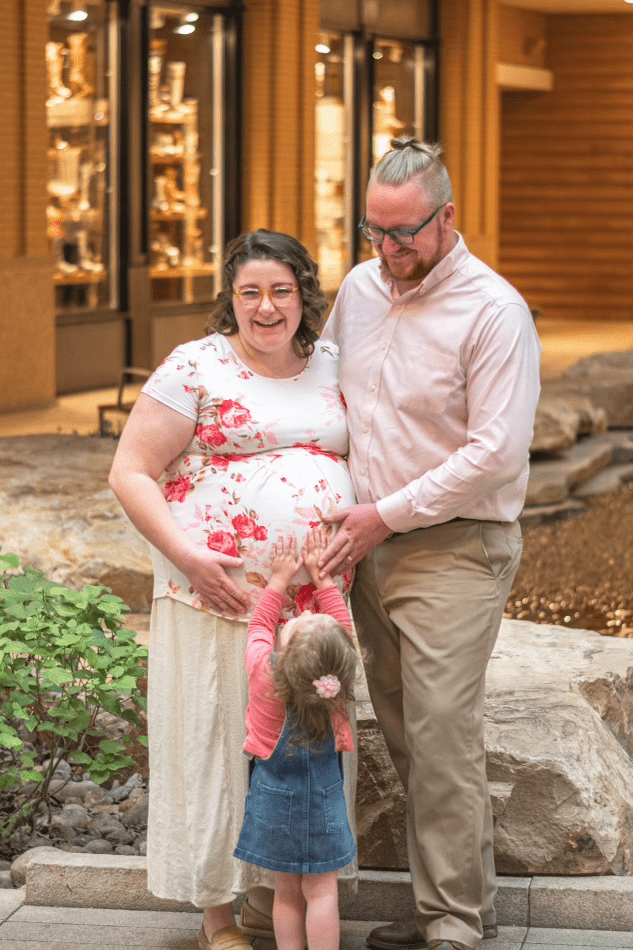This year at the Commission on the Status of Women [CSW], at the United Nations, the topic of discussion was finding solutions for global poverty. While some of the family and motherhood organizations came up with good solutions for teaching entrepreneurialism, networking, and developing life skills through training programs and micro-lending solutions, many global NGOs and diplomats suggested solutions that would dismantle the family and decrease marriage.
They advocated for more abortion services to be provided and paid for by governments since, through a socialist lens, it is cheaper to pay for abortion services than for births. Others also looking through a socialist, anti-family lens seemed to care about women in poverty when they said that mothers, wives, grandmothers, and children caring for parents should all be called “unpaid workers” and should be paid for fulfilling family responsibilities, but is that message really honoring wives, mothers and grandmothers?
These seemingly caring messages can be confusing to listeners if they don’t recognize the true value of family relationships and marriage and the miracle of life. The paid worker suggestion insinuates that roles and relationships in family have the same value to us as money or employment. The reason motherhood and nurturing are so valuable is because it comes without price, and is priceless to society. No one can financially compensate a person for their love and sacrifice for another. Therefore, when love and sacrifice are given, they are more valuable than any paycheck would ever be. Paying a mother to be a mother would ultimately lead to the exploitation of motherhood. When a person gets paid for motherhood, then a mother becomes a birther and children or services become transactional, not the life-giving, most influential support that they really are when done with a mother’s love.
When motherhood becomes nothing more than “unpaid work”, then we promote financial entitlement, lose the whole family unit by focusing on work transactions, and simultaneously disconnect children from their mothers by taking a mother’s supreme status away. A woman’s children would represent money to her. That’s objectification of children and women.
Marriage is rarely talked about in a positive light at the CSW conferences. Most marriage references refer to child-marriage and how unnecessary marriage is for a woman’s happiness. Ironically, most people discussing marriage are unmarried people.
Obviously, a person doesn’t need to be married to live a fulfilled life or to find happiness, but marriage and family have led to stable, selfless societies since the beginning of recorded history. When a man and a woman sacrifice for each other and their children by honoring a marriage covenant, the children have greater outcomes and society stays more service-oriented, instead of self-oriented.
The University of Virginia sociologist and director of the National Marriage Project, Brad Wilcox, says that data proves that marriage helps all children. He said, “Marriage benefits children of all racial and ethnic backgrounds,” (Fox News, Kendall Tietz “Marriage Promotes White Supremacy According To White University Professor”)
Pat Fagan, Anne Dougherty, and Miriam McElvain from the Marri Research Institute give “164 Reasons to Marry”, including lower abuse rates, more sexual fulfillment, and less drug abuse and better grades for children in school.
The Intersectional Lens
Many voices at the United Nations are looking through an intersectional lens as they try to solve complex global problems. Viewing problems through an intersectional lens leads to polarization and blame instead of empowerment and problem solving.
Intersectional theory was invented by Kimberle Williams Crenshaw, a critical race theory and civil rights activist. The theory suggests that certain people, with certain identifiers such as being married, not married, employed, unemployed, religious, non-religious, or being a certain race are indicators of how much a person is oppressed as a victim or is an oppressor. The theory is very rigid and doesn’t allow for a person to declare that they are not a victim or an oppressor if they don’t want to be one. Once they have be categorized through the intersectional lens, then they are socially, physically, and morally stuck.
At the United Nations the conversations have adopted the terms intersectional and intersectionality to create more victims and oppressors. While discussing widowhood and inheritance rights problems in Africa, which are big problems for women, the WHO organization said that we need to take an intersectional view of these women and therefore give them more access to abortions. It’s true that rape of widows does often happen, but to declare them victims and to just provide abortions gives them no way past their problems. True empowerment shows a person a path away from victimhood, not toward it.
Take Aways
The conversation at CSW is always vast and impossible to monitor completely, but what I saw this year convinced me, more than ever, that our families really are the most powerful groups in society, and that we must value them and protect them. If we keep family, marriage, and motherhood in the forefront of our minds and conversations, then the next generation has a chance to see past the false, disempowering intersectional lens that is being presented to us all.
Family relationships and the organic organizational structure of family bonds has always had the power to throw those who would oppress individuals on their heads.
Talk to your children and grandchildren about how much family means to you, about stories of family members from the past, and about how the principles in family life, like marrying and having children can lead them to great purpose and fulfillment. Simple conversations can bring a needed light in our darkening world.
Strengthen your family bonds and better solve family problems by learning self-government





